שפרלינג דניאל, פרופ’

Publications
Dissertation
Title: Posthumous Interests: Legal and Philosophical Examination in the Medical Context
Date of submission: July 2006
Number of pages: 408
Language: English
Name of supervisor: Bernard Dickens (Other committee members: Trudo Lemmens and Wayne Sumner)
University: University of Toronto
INDEX
Publications’ ranking was made in the following order:
For books, the SENSE Ranking of Academic Publishers has been referred to;
For journal articles and book reviews published in academic journals ranking was based on JCR first and if ranking was unavailable at JCR, ranking was based on SJR. In special cases where ranking in the field of philosophy at SJR was more relevant than ranking in JCR, reference to SJR has also been made. For articles appearing in medico-legal journals, ranking was based on the list in the field Health, Medicine, Psychology and Psychiatry according to Washington & Lee Law Journals Ranking. Citation numbers are derived from google scholar.
Scientific Books (Refereed)
Authored Books – Published
1) Sperling, D. (2006). Management of post-mortem pregnancy: Legal and philosophical aspects,178 pp., Aldershot: Ashgate Publishing, [The book is ranked “B” under the SENSE ranking of academic publishers]. The book is cited 11 times (excluding reviews)
Reviews:
Rebecca Bennett, 15(2) Medical Law Review, 268-271 (2007)
Michael Barilan, 12(1) Medicine, Healthcare and Philosophy 112 (2009)
2) Sperling, D, (2008). Posthumous interests: Legal and ethical perspectives, 273 pages. Cambridge, UK: Cambridge University Press. [The book is ranked “A” under the SENSE ranking of academic publishers]. The book is cited 69 times (excluding reviews)
Reviews:
T.M. Wilkinson, Journal of Value Inquiry, 43(4): 531-535 (2009)
James Taylor, Metaphilosophy, 41(5): 727-731 (2010)
3) Sperling, D. (2019). Suicide tourism: Understanding the legal, philosophical and socio-political dimensions, 224 pages. Oxford and New York: Oxford University Press [The book is ranked “A” under the SENSE ranking of academic publishers].
Reviews:
D.A. Jones, The New Bioethics, DOI: 10.1080/20502877.2020.1767922 (2020)
W. Sumner, Bioethics, DOI: 10.1111/bioe.12741 (2020)
K. Carrigan, Sociology of Health & Illness, DOI: 10.1111/1467-9566.13151 (2020)
G. Williams, Medical Law Review, 633-641 (2020).
Edited Books and Special Journal Issues – Published
Kirby, M., Magnus, R., Ramon Cossio Diaz,, J., Sperling, D., & Verges, C. (2016). Casebook on bioethics for judges. Haifa, Israel: Israel National Commission for UNESCO. 131 pages.
Articles in Refereed Journals
Published
Sperling, D. (2004) From the dead to the unborn: Is there an ethical duty to save life? Medicine and Law, 23(3), 567-586.
Sperling, D. (2004) Breaking through the silence: The illegality of performing resuscitation procedures on the newly-dead. Annals of Health Law, 13(2), 393-426.
Sperling, D. (2004). Maternal brain-death. American Journal of Law and Medicine, 30(4), 453-500.
Sperling, D. (2005) Do pregnant women have (living) will? Journal of Health Care Law & Policy, 8(2), 331-342.
Sperling, D. (2007) Like lilies in clear water: On the law and philosophy of law of Justice Mishael Hechin. Netanya Academic College Law Review, 6, 445-460 [in Hebrew].
Sperling, D. (2008) Conscience, principled refusal and ethics of refusal to provide treatment to a patient’s request. Harefuah, 147(5), 398-402 [in Hebrew]
Sperling, D. (2008) The Brain-Respiratory Death Act, 2008: Some comments to the new law. The Journal of Medicine and Law, 38, 207-209 [in Hebrew].
Sperling, D.(2008) Law and bioethics: A rights-based relationship and its troubling implications. Current Legal Issues, 11, 52-78.
Sperling, D. (2009) On wrongful birth and the reasoning behind the reasons to terminate pregnancy: Some reflections following X v. The state of Israel Hamishpat, 27, 34-50 [in Hebrew]
Sperling, D. (2009) Israel’s new Brain-Respiratory Death Act: One step forward or two steps backward? Reviews in the Neurosciences, 20(3-4), 299-306.
Sperling, D. (2009) From Iran to Latin America: Must prenatal diagnosis be provided with abortion for congenital abnormalities? American Journal of Bioethics, 9(8), 61-63.
Sperling, D. (2010) Food law, ethics and food safety regulation: Roles, justifications and expected limits Journal of Agricultural and Environmental Ethics, 23, 267-278
Sperling, D. (2010) Commanding the ‘Be Fruitful and Multiply’ directive: Reproductive law and policy in Israel. Cambridge Quarterly of Healthcare Ethics, 19(3), 363-371
Sperling, D., & Simon Y. (2010) Attitudes and policies regarding access to fertility care and assisted reproductive technologies in Israel. Reproductive Biomedicine Online, 21(7), 854-861.
Sperling, D. (2011) Review of recent trends regarding the status and contribution of HMOs committees for exceptional cases to access and quality of medical care. The Journal of Medicine and Law, 44, 26-36 [in Hebrew]
Sperling, D. (2011) “Male and Female He Created Them”: Procreative liberty, its conceptual deficiencies and the legal right to access fertility care of males. International Journal of Law in Context, 7(3), 375-400.
Sperling, D. (2011) The therapeutic triumph: Making poor claims and offering a revised conceptualization to justify embryo selection. Ethical Perspectives, 18(3), 407-440.
Sperling, D. (2011) Bringing life from death: Is there a good justification for posthumous cloning? Journal of Clinical Research & Bioethics doi:10.4172/2155-9627.S1- 001 s1 – s3.
Sperling, D. (2012) & Cohen N. The influence of the Israeli State Economy Arrangement Law and Supreme Court decisions on health policy and status of the right to health in Israel – A Neo-Institutional analysis. Hukim, 4, 153-236. [in Hebrew]
Sperling, D. (2012) Socializing the public: Invoking Hannah Arendt’s critique of modernity to evaluate reproductive technologies. Medicine, Healthcare and Philosophy, 15(1), 53-60.
Sperling, D., & Gurman, G. (2012) Factors encouraging and inhibiting organ donation in Israel: The public view and the contribution of legislation and public policy. Journal of Bioethical Inquiry, 9(4), 479-497.
Sperling, D. (2013). The right to know one’s genetic origin: Are gamete donations and misattributed paternity cases alike? American Journal of Bioethics, 13(5), 60-63.
Sperling, D. (2014) Needs, expectations and public knowledge concerning services outside the medical basket: A lesson from Israel. Health Policy, 117, 247-256.
Sperling, D. (2014). Whose life is it anyway? Odyssey, 25, 44-51 [in Hebrew]
Garasic M., & Sperling D. (2015). Mitochondrial replacement theory and parenthood. Global Bioethics, 26(3-4), 198-205.
Sperling, D. (2017). (Re)Disclosing physician financial interests: Rebuilding trust or making unreasonable burdens on physicians? Medicine, Healthcare & Philosophy, 20(2), 179-186.
Sperling, D. & Cohen, N. (2018). A neo-institutional analysis of the hidden interaction between the supreme court and the government: The right to healthcare in Israel as a test-case. Israel Journal of Health Policy Research, 7(1), 71-86.
Sperling, D. (2019). Revising the requirement of informed consent in an era of privatization, managed care and ACOs: Implications for bioethics and the connection between law and ethics. Journal of Comparative and International Aging Law & Policy, 10, 45-114.
Sperling, D. (2020). Training nurses to better deal with ethical dilemmas in disasters. Disaster Medicine and Public Health Preparedness DOI: 10.1017/dmp.2020.144
Sperling, D. & Pikkel, R.B. (2020). Promoting patients’ rights through hospital accreditation. Israel Journal of Health Policy Research https://doi.org/10.1186/s13584-020-00405-1
Sperling, D. (2020). Ethical dilemmas, perceived risk, and motivation among nurses during the COVID-19 outbreak. Nursing Ethics https://doi.org/10.1177/0969733020956376
Sperling, D. (2020). Should a Patient Who Is Pregnant and Brain Dead Receive Life Support, Despite Objection From Her Appointed Surrogate? American Medical Association Journal of Ethics, 22(9), E1005-E1010
Sperling, D. (2020). Nurses’ attitudes regarding ethical dilemmas, risk perception and motivation to provide care during the COVID-19 outbreak. Body Knowledge, 18, 6-11 [in Hebrew].
Sperling, D. (2021). “Like a Sheriff in a Small Town”: Status, Roles, and Challenges of Ethics Committees in Academic Colleges of Education. Journal of Empirical Research on Human Research Ethics. https://doi.org/10.1177/15562646211005253
Sperling, D. (2021). Nurses’ Challenges, Concerns and Unfair Requirements During the COVID-19 Outbreak. Nursing Ethics, 28(7-8), 1096- 1110. https://journals.sagepub.com/doi/10.1177/09697330211005175
Sperling, D. (2022). Why we need to reconsider moral distress in nursing. Nursing Ethics. https://journals.sagepub.com/ doi/full/ 10.1177/ 09697330221085763
Sperling, D. (2022). Travelling to die: Views, attitudes and end-of-life preferences of Israeli considering receiving aid-in-dying in Switzerland. BMC Medical Ethics. https://doi.org/10.1186/s12910-022-00785-w
Sperling, D. (2022). “Could you help me die?”: On the ethics of researcher-participant relationship and the limits of qualitative research. International Journal of Qualitative Methods. https://doi.org/10.1177/16094069221105076
Sperling, D., Shadmi, E., Drach-Zahavy, A., & Luz, S. (2022). Champion nurses as street-level-bureaucrats: Factors which facilitate or inhibit policy making and reconstruction. Frontiers in Psychology 13:872131. https://www.frontiersin.org/articles/10.3389/fpsyg.2022.872131/full
Karakoe-Eyal. N. & Sperling, D. (2023). The Patient Rights Act in the Supreme Court decisions: An empirical investigation of role that the Act has received in the judicial discourse. Mishpat U’Mimshal Law Review, 27. lawgov-20231119.pdf (haifa.ac.il) [in Hebrew]
Abu Hatoum & Sperling, D. (2023). Views, attitudes, and reported practices of nephrology nurses regarding shared decision-making. Nursing Ethics. https://doi.org/10.1177/09697330231200565
Sperling, D., Golfenshtein, N., Drach-Zahavy, A, Toren, O., Hirschfeld, M., Wagner, N., Fleishman, T,T, Benbenishty, J., & Srulovici, E. (2023). Insights from coping with the COVID-19 pandemic and recommendations for enhancing preparedness for future crises: Recognizing the organizational paradox for advancement. Body of Knowledge, 23, 21-30 [in Hebew].
Ben Shetrit, S., Daghash, J., & Sperling, D. (2024). The Use of artificial intelligence-based technologies in palliative care: Advancing patients’ well-being at end-of-life and enhancing the Implementation of the Dying Patient Act. Israel Medical Association Journal, 26, 126-129.
Sperling, D. (2024). “They choke to death in front of your very eyes”: Nurses’ lived experiences and perspectives on end-of-life care during COVID-19. BMC Palliative Care, 23, 35. https://doi.org/10.1186/s12904-024-01352-3
Spelring, D. (2024). “People aren’t happy to see refugees coming to Switzerland. They don’t like assisted suicide for foreigners”: Organizations’ perspectives regarding the right-to-die and suicide tourism. Death Studies. https://doi.org/10.1080/07481187.2024.2337209
Sperling, D., Riskin, A., Borenstein-Levin, & Hochwald, O. (2024). At the threshold of viability: to resuscitate or not to resuscitate – The perspectives of Israeli neonatologists. BMJ Pediatrics Open. https://doi:10.1136/bmjpo-2024-002633
Sperling, D. (2024).Views, attitudes and challenges when supporting a family member in their decision to travel to Switzerland to receive aid-in-dying. International Journal of Public Health, 69. https://doi.org/10.3389/ijph.2024.1607410
Sperling, D. (2024). Needs, experiences, and hopes for aging futures among older adults in the LGBTQ communities: A qualitative study. Archives of Sexual Behavior. https://doi.org/10.1007/s10508-024-02938-x
Commentary in Refereed Journal
Sperling, D. (2010) Symbolic organs and extended self: Expanding our understanding of motivation to donate organs. British Medical Journal, 340, c2182.
Articles or Chapters in Scientific Books (Refereed)
Published
Sperling, D. (2008) Me or mine? On property from personhood, symbolic existence and motivation to donate organs in W. Weimar, M.A. Bos, J.J. van Busschbach (Eds), Organ transplantation: Ethical, legal and psychological aspects – towards a common European policy (pp. 463-470). Lengerich: PABST Science Publishers.]
Reviews:
James Taylor, 9(1) American Journal of Transplantation (2009)
Sperling, D. (2009) Talk to whom? Redefining autonomy in Talk to Her in S. Shapshay, (ed)., Bioethics at the movies (pp. 312-327). Baltimore: Johns Hopkins University Press [The book is ranked “A” under the SENSE ranking of academic publishers]. Article cited 5 times.
Reviews:
Tony Miksanek, 301(11) JAMA 1180-1181 (2009)
Jeremy Sugarman, 324(5930) Science 1018 (2009)
Sperling, D. (2012) Reproducing justice: Is there a good justification for equal qccess to fertility care? In A. den Exter and M. Buijsen (Eds.), Rationing healthcare: Hard choices and unavoidable trade-offs (pp. 111-129). Antwerpen: Maklu Press.
Sperling, D. (2013) Death during pregnancy: Legal, ethical and professional aspects in D. Rubinstein & N. Tabak (Eds.), Ethics in Current Nursing (pp. 197-215). Tel Aviv: Probook & Dyonon [in Hebrew].
Sperling, D. (2014) Human trafficking and organ trade: Does the law really care for the health of people? In M. Feeman, S. Hawkes & B. Bennett (Eds.), Law and global health (pp. 193-208). Oxford and New York: Oxford University Press.
Sperling, D. (2015) Regulation of end-of-life care in Israel in G. Siegal (ed.), Blue white bioethics: On Israeli bioethics (pp.316-348). Jerusalem: Bialik [in Hebrew].
Sperling, D. (2021). Peer review ethics. In L. Josefsberg Ben-Yehoshua, D. Sperling and A. Ran (Eds.), Ethics and panic in the world of information(al) sciences, copyrights and academic publication (pp. 137-157). Tel Aviv: MOFET Institute.
Articles in Conference Proceedings
Published
Sperling D. (2009) Book Review: Yael Hashiloni-Dolev, A Life (Un)Worthy of Living: Reproductive Genetics in Israel and Germany (Dordrecht, the Netherlands: Springer: 2007) Medicine, Healthcare & Philosophy, 12(4), 485-486.
Sperling D. (2013). Book Review. J.S.Taylor. Death, Posthumous Harm and Bioethics (NY: Routledge: 2012). Journal of Applied Philosophy, 30(3), 285-287.
Sperling, D. (2018). Book Review. Mike W. Martin, Memoir Ethics: Good Lives and the Virtues. London, England: Lexington Press, 2016. Journal of Value Inquiry https://doi.org/10.1007/s10790-018-9672-7
Other Works and Publications
Sperling D. (2003) Due Process and the Dignity of the Dead Ultra Vires 4(4):9
Sperling D. (2006) Do the Dead Have Rights? Innovate 2:8
Sperling D. (2009) Commentary to Ella Koren, Coping With Errors and Moral Luck Paradox Journal of Medicine and Law 40:50 [in Hebrew]
Sperling D. (2010) Your Rights are the State’s Duties: Your Duty to Demand Them Israel Association for Ethiopian Jews Magazine 31: 5-7
Sperling D. (2010) To Be Born or Not to Be Born? That is The Question! Bidlataim Ptuchot 33:24-25 [in Hebrew]
Sperling D. (2013) Disclosing Physician Financial Interests. Medical Ethics Advisor
Background
I am a faculty member and the Head of the Master’s Program in Nursing at the Department of Nursing, University of Haifa. I also serve as an Associate Editor of BMC Medical Ethics and Member of the of the Executive Editorial Board in Nursing Ethics. Recently, I joined as a Management Committee Member of a COST Action on the ethics of dementia care, and a member in a COST Action on palliative care. My research areas are bioethics, especially ethics at end-of-life, health law and health policy. My recent book discusses and analyzes the phenomenon suicide tourism (https://global.oup.com/academic/product/suicide-tourism-9780198825456?cc=il&lang=en&#). I am currently involved in few studies on palliative care; decision-making at end-of-life; issues relating to end-of-life needs and concerns of older LGBT people; ; moral distress in nursing; the study of compassion in medical ethics; and informal caregiving of the ageing population, especially by family members.
For my Google Scholar page see: https://scholar.google.com/citations?user=HUgdy-EAAAAJ&hl=en
For my profile on Researchgate see: https://www.researchgate.net/profile/Daniel-Sperling-3
For my webpage on Cris see: https://cris.haifa.ac.il/en/persons/daniel-sperling
Graduate Students under the supervision of Prof. Sperling
Ph.D. Students
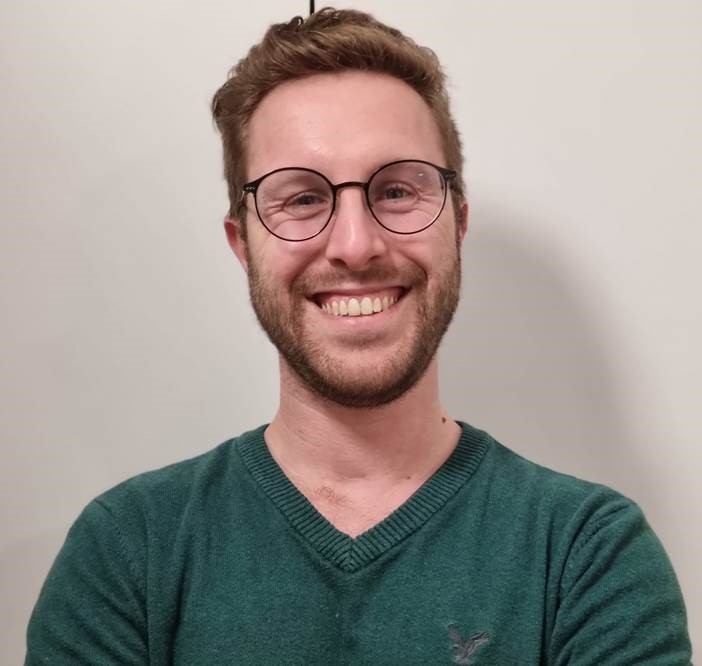
Ori Ashkenazi Sarfati
Ori holds an M.A. Degree in Cognitive psychology from the University of Haifa, and a B.A Degree in Psychology and Education from Tel-Hai College. He is currently a teaching assistant at Emek Israel College and Writing assistant at Gordon Academic College.
Ori’s Ph.D. research focuses on the family-work conflict of working informal caregivers who take care of an elderly person entitled to a nursing benefit in the Israeli context. The study will use quantitative and qualitative designs to provide a theoretical model for understanding the resources, requirements and needs of informal family members dealing with the conflict. The work will have much significance to the nursing profession. Following the promotion of the community care, the community nurse has an important role in maintaining the well-being of the informal caregivers by supporting and providing required knowledge and training. The study can contribute to a deeper understanding of the nurse’s role in the community, with an emphasis on communication and the relationship with the informal caregiver, as well as implications for building the nurses’ school curriculum. The research received a grant from the Israel National Insurance Institute.
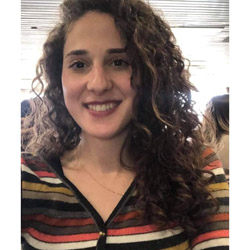
Grace Qamar
Grace Qamar is a Ph.D student in nursing as a part of the direct doctoral track, at the University of Haifa for which she also received an excellence award. She holds a bachelor’s degree in Nursing from the University of Haifa. Following the encouragement and the support from Professor Sperling, she decided to continue her studies as a researcher in the field of Nursing. She sees in the nursing profession in general and nursing research in particular as an opportunity to develop her academic career and professional advancement.
Her research proposal entitled “Moral distress among nurses providing end-of-life care: Factors, perceptions and implications.” The main research aims are to describe and map the personal and professional perceptions and attitudes of the nursing staff working in intensive care units to the phenomenon of moral distress concerning treatment and practice at end-of-life; to assess the extent of the phenomenon of moral distress among the intensive care nurses, the factors influencing it and its possible consequences. Furthermore, her doctoral work also explores the significance of raising awareness about this phenomenon among staff and organizations in order to bring about change in the organization. Moral distress is discussed extensively throughout the literature, which contributed to the justification of her study.

Nidaa Natour
Born in 1983 in Shefa-‘Amr, Nidaa Natour is a Ph.D Student in nursing at The University of Haifa. She holds an M.A. Degree in Clinical Nursing from Ben Gurion University, and a B.A Degree in Health Systems Management from Emek Israel College. Ms. Natour works as a nurse and a lecturer at Hadassah University Hospital, Mount Scopus (Jerusalem). Her main focus is developing skills and training methods in nursing by building, together with the university’s staff, courses and workshops in various fields in accordance with the changing needs of the hospital.
Natour’s Ph.D study examines the relationship between religion and the level of religiosity to the level of death anxiety and dying anxiety, and their effect on the intention to receive palliative care within the Arab society in Israel. The study aims to research this relationship and its complexity. Ms. Natour believes that understanding this unique relationship will help to improve the quality of lives of Arab patients in Israel who are at the end of their lives by establishing practical ways to properly manage levels of death anxiety and dying anxiety, and by increasing the involvement of the dying person in making decisions regarding the end of their lives, whether or not they wish to be referred to palliative care.

The supplementary track leading to Ph.D. studies
Shani Ben Shetrit
Shani holds a B.A in Political Science and Public Communication from Bar Ilan University; an M.A. in Dispute Resolution, Mediation, and Negotiation from Tel Aviv University; and an LL.B degree in law – with specialization in international commercial law from the Center for Law and Business in Ramat Gan and LL.M degree in law from Tel Aviv University. She is currently an associate at Pearl Cohen law firm.
Ms. Ben Shitrit’s research, entitled “The impact of AI technologies on the application of the dying patient act” aims to examine the impacts of technologies-based AI on improving the quality and timing of palliative care. Specifically, she intend focusing on
two challenges deriving from the Dying Patient Act: the lack of clarity in the definitions of the act and the lack of a linked database between medical institutions that would have contained the preliminary instructions of a dying patient and her medical information. These challenges make it difficult for the staff members to make real-time decisions in complex situations.
M.A. Students
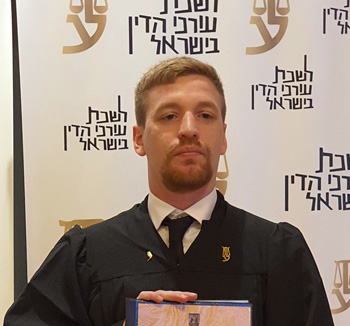
Michael Markman
Michael Markman is currently enrolled in the Master’s degree program in Nursing. Michael holds Bachelor’s degrees in Nursing and Law and a Master’s degree in Law with a specialization in Health and Law from the University of Haifa, as well as a B.A. in Natural science from the Open University in Israel. He is a registered nurse since 2014, and currently is employed as an operation room nurse in Soroka Medical Center in Beer Sheva. In addition, Mr. Markman is a member of the Israeli Bar Association since 2020. Mr. Markman’s thesis is concerned with the practice and implementation of informed consent in the context of surgical patients and the way that such practice and implementation accord with the Patient’s Rights Act.

Manar Hojirat
Manar is currently a student in the Master’s program in nursing, with a bachelor’s degree in nursing from the University of Haifa. She is a registered nurse since 2021, and currently is employed as a nurse in the emergency center for corona patients at Maccabi Health Services. Manar’s thesis focuses on the healthcare coping with the event of a patient’s death. In her work, she is qualitatively exploring and seeking the understanding of the staff’s experiences in dealing with a patient’s death, and the effects of such events on their mental well-being. Her research aims to contribute to increasing mental resilience among the caring staff, and preventing mental burnout among them, especially those who work with terminally ill patients.

Ihab Watad
Ihab Watad is a currently a Master’s student in Nursing at the University of Haifa generic program. He holds a bachelor’s degree in nursing from the University of Haifa, and an EMT- PARAMEDIC certificate from MDA. Ihab works as a nurse in the Internal Medicine Department at Sheba Hospital since 2012. Ihab’s master’s thesis focuses on the relationship between nurses’ compassionate care, compassion fatigue and self-compassion and their response to and experience of a patient’s death.

Svetlana Surganov
Svetlana is enrolled as a student in the Master’s program in nursing under the Symptom Management specialty. She holds a B.A. in Nursing from the Zefat Academic College. Svetlana completed an advanced course in Emergency Medicine and Clinical guidance at the Center for Advanced Training in Nursing in Rambam Hospital. Since 2018, she is practicing as a nurse and currently holding the position of the head nurse’s deputy in the ER at Bnei Zion hospital in Haifa. Svetlana’s thesis focuses on family presence during resuscitation. In her research, she qualitatively examines and explores the ER working staff views and perceptions regarding family presence during resuscitation, the meanings attached to it, and the ethical and cultural aspects related to the researched phenomenon.
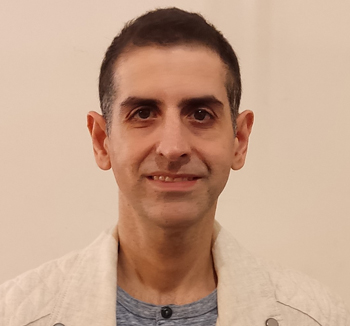
Yaniv Blecherman
Yaniv is currently a student in the Master’s program in Nursing. He holds Bachelor’s degrees & P.E. in Electrical Engineering. Yaniv graduated the program for retraining academics to nursing. He completed an advanced course in ICU and Clinical training, and he currently works as an ICU nurse in Wolfson Medical Center.
In his thesis, Yaniv qualitatively explores the nature of the relationship between organ donors and recipients and the experience and meanings attached to such a relationship.
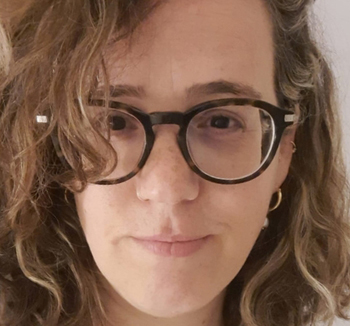
Shira Indursky
Shira is currently a student in the Master’s program in Nursing. She holds bachelor’s degree in Psychology from Bar Ilan University and graduated the program for retraining academics to nursing. She completed an advanced course in ER medicine and works as a registered nurse at the emergency department in Sheba Medical center for the last ten years.
In her thesis, Shira explores the relationship and effect of moral distress of nurses on the quality of nursing care in the emergency department.

Wassiem Abu Hatoum
Wassiem Abu Hatoum is a Nursing Master’s student at the University of Haifa. He holds a bachelor’s degree in Nursing from the University of Haifa.
Mr. Abu Hatoum is working in Nephrology unit in HaEmek Medical Center-Afula since 2007. He completed an advanced course in Nephrology and Infection control. He presented research papers in international conferences held in Ljubljana-Slovenia and Valencia-Spain in addition to his participance in many Nephrology and Infection Control conferences in Israel.
Mr. Abu Hatoum’s thesis is entitled “Shared decision-making at end-of-life care for end stage renal disease patients in Israel” . In his research, he aims at contributing to the practice of nephrology at end-of-life, especially with regard to decision-making and advancement of patient care.
Wassiem received a grant for his research plan from Minerva Center for Interdisciplinary Study of End of Life.

